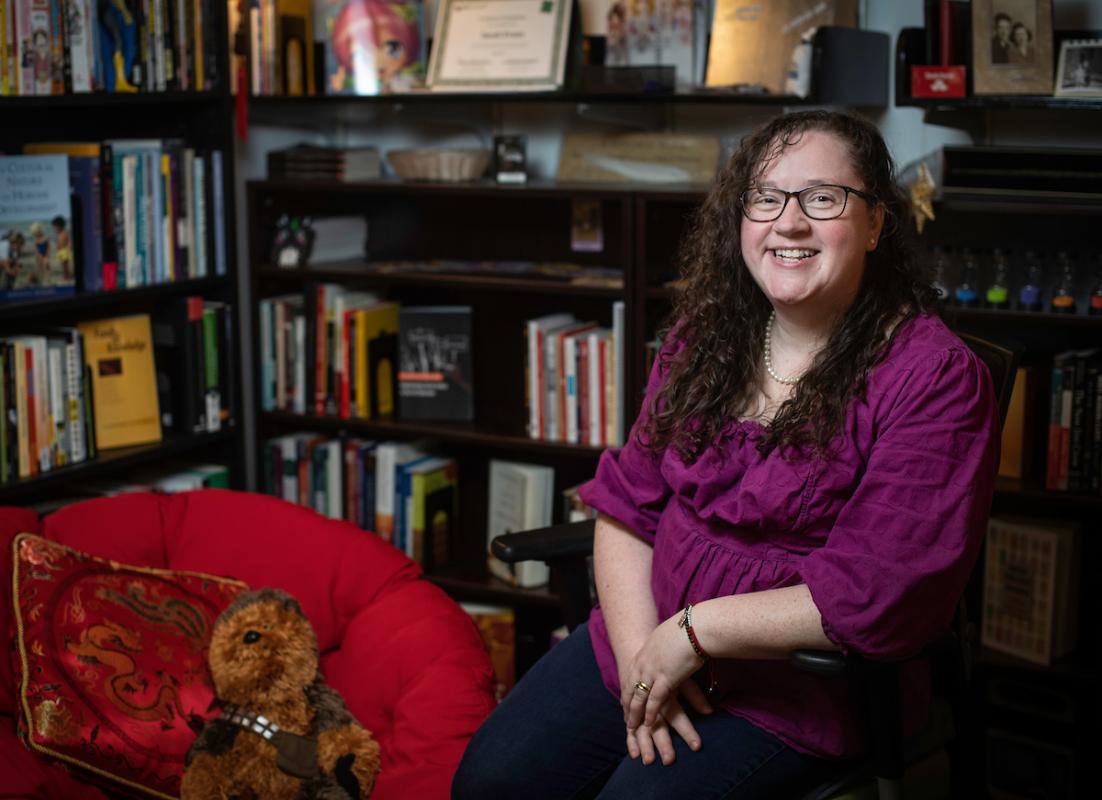 Radio stations partnering with libraries offer a unique solution for bringing STEM
education to low-income rural areas, according to a University of North Texas researcher.
Radio stations partnering with libraries offer a unique solution for bringing STEM
education to low-income rural areas, according to a University of North Texas researcher.
Raise Up Radio came about after Assistant Professor Sarah Evans in UNT’s College of Information Department of Information Science was speaking with a colleague in library youth services about how families used to listen to stories on the radio.
“The coronavirus brought this mainstream attention to the fact that the rural areas still have a lot of people who don't have broadband,’” Evans says. “Even if they do, there's great inconsistency in service and prices. There are definitely important efforts to remediate that. However, it’s going to take several years, and kids are learning and growing right now.”
Local radio stations are a vital lifeblood for rural communities, which led to the idea that they could broadcast STEM content produced by local libraries to families who may not be able to access internet at home.
“It’s not just the library putting together another thing. It’s actually involving families and looking at what STEM issues are relevant to their local communities, because those can all be slightly different,” Evans says. “In some communities, they're like, ‘We have a community garden,’ so maybe we'll do some STEM stuff around gardening. In other communities, there are seniors who don't understand how the internet works, so what are some things we could talk about on the radio to address that?”
The radio broadcasts also would connect to activity kits that community members could check out from the library, creating further learning opportunities.
The work focused on one library to start. Additionally, researchers are creating an online toolkit and network for librarians to use to share their ideas and experiences between those who have started working with their local radio stations and those who are interested in doing so.
For the first year of the grant, Evans was joined by Assistant Professor Lance Simpson at University of Alabama and UNT Graduate Assistant Lacy Molina in working with a library in Texas and a library in Alabama to create a STEM radio program for local children in coordination with a local station. The second year will expand to four more libraries, allowing the initial libraries to act as mentors to the new libraries. As new libraries join in the program, more experienced librarians would act as resources for librarians starting similar programs.
“Rural America needs more resources,” Evans says. “There are children who are growing up in rural areas, which have all kinds of wonderful experiences and lots of things that they know about in terms of STEM. If you're a farmer, you know a lot about science. We want to tap into those resources and add to them, so that rural kids can recognize their knowledge and grow. People can't always get to the library, but at least they'll get a broadcast. They can be part of this community effort to learn more about the concepts that they need to think about, the information that they need.”
The work is funded by a $420,000 grant from the Institute of Museum and Library Services' Laura Bush 21st Century Librarian Program, which supports creating a diverse future workforce and furthering professional development to support the information needs of communities.